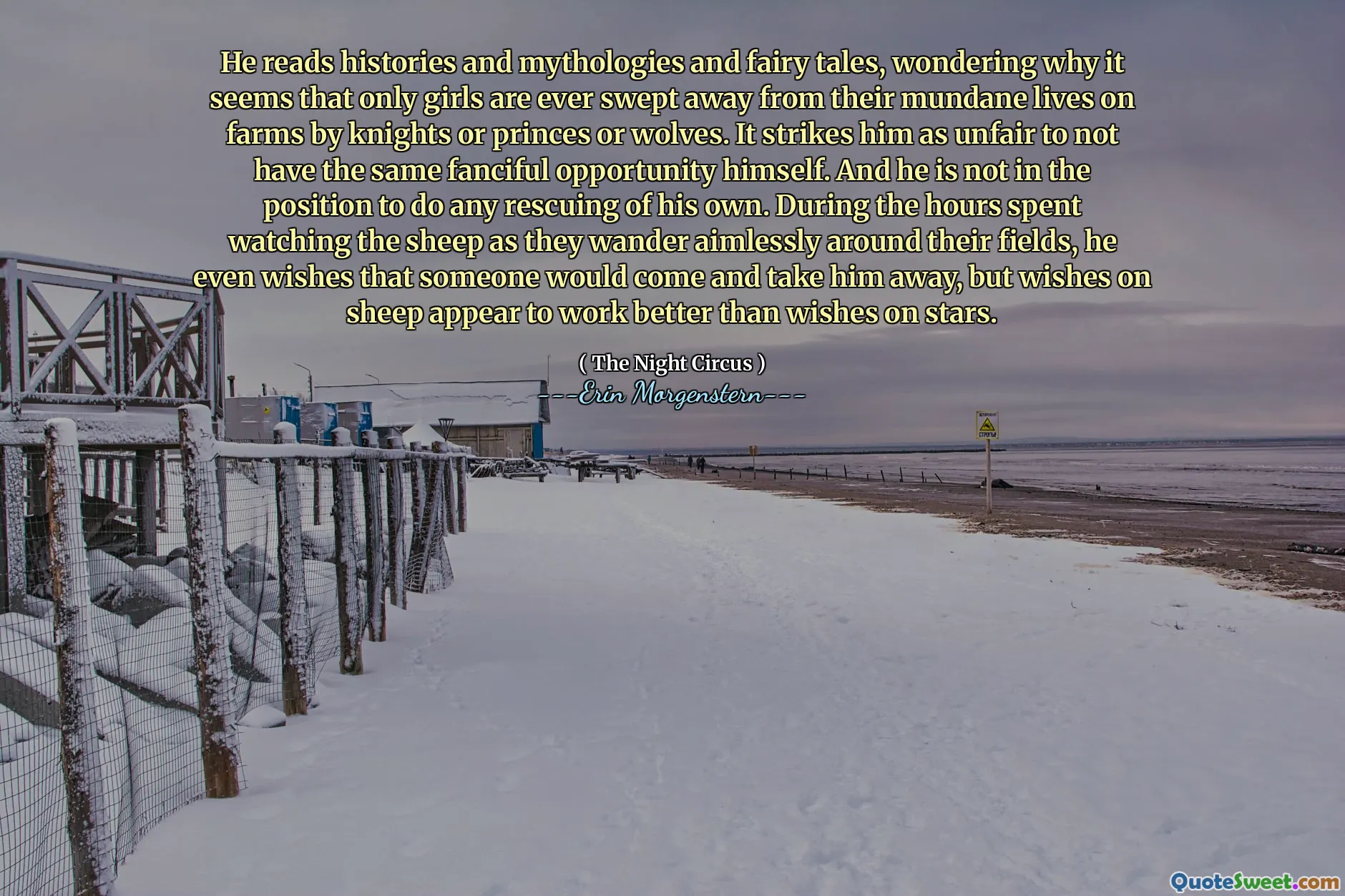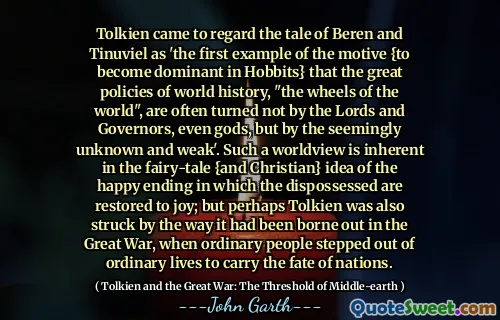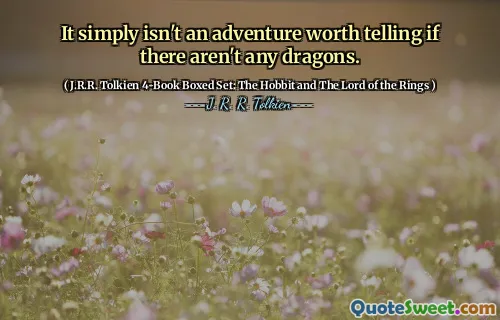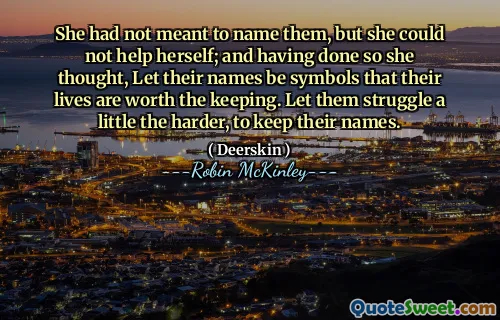
He reads histories and mythologies and fairy tales, wondering why it seems that only girls are ever swept away from their mundane lives on farms by knights or princes or wolves. It strikes him as unfair to not have the same fanciful opportunity himself. And he is not in the position to do any rescuing of his own. During the hours spent watching the sheep as they wander aimlessly around their fields, he even wishes that someone would come and take him away, but wishes on sheep appear to work better than wishes on stars.
This excerpt captures a deeply poignant yearning for escape and transformation that resonates with the universal desire to break free from the monotony of everyday life. The narrator’s reflection on fairy tales highlights the gendered narratives we grow up with—where girls are the ones carried away by magical forces, while boys are left on the sidelines, unable to partake in the same romanticized adventure. It's a subtle critique of storytelling traditions and societal expectations that often limit one's sense of possibility based on gender.
Moreover, the protagonist’s contemplation about wishing on sheep rather than stars underscores an unexpected optimism born out of solitude. Watching the sheep wandering aimlessly serves as a metaphor for his own life’s inertia, yet within this stillness, a fragile hope remains that something extraordinary could yet happen. The fact that he believes wishes on sheep may be "better" than wishes on stars speaks to an imaginative innocence and a willingness to find magic in unexpected places.
In a broader context, this passage reminds us of the human need for rescue and transformation, not just physically but existentially—from dullness, from invisibility, from the constraints others place upon us. Ultimately, it invites reflection on how we construct our fantasies, the gender roles embedded within them, and how even the quietest moments of watching and wishing can harbor profound longings for change.






